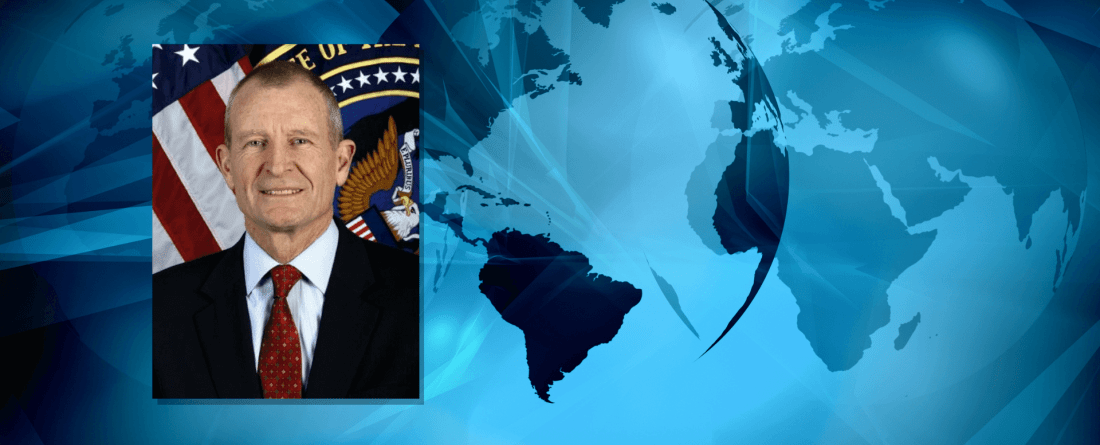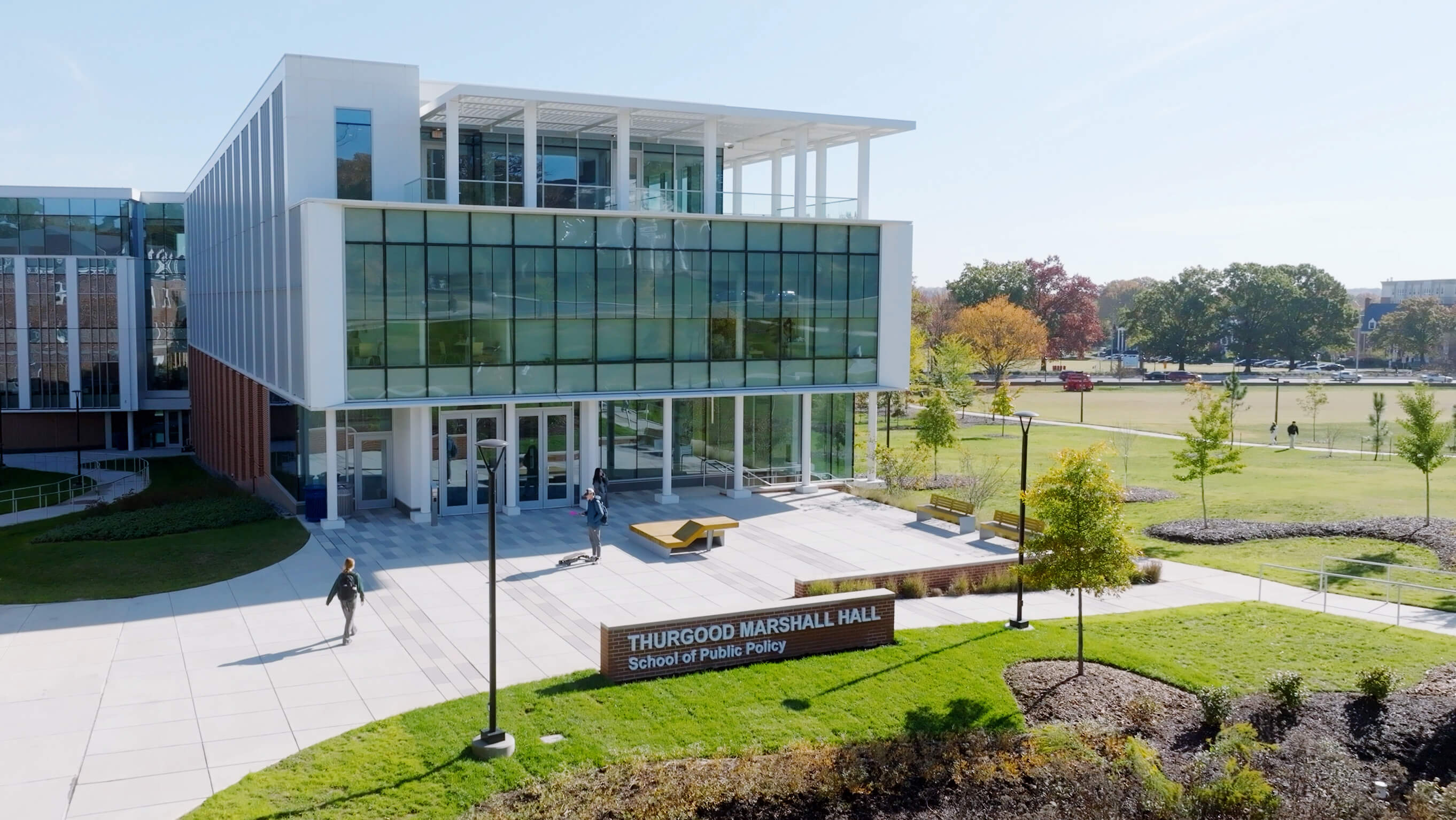
The Norman and Florence Brody Family Foundation Public Policy Forum gathers renowned public servants, policymakers, and thought leaders to promote discussion and bring awareness to issues of national and international significance. The School of Public Policy was honored to host Admiral Dennis Blair as its first Brody Forum speaker of the 2022-23 academic year. With an introduction befitting his distinguished naval career and quintessential leadership role in the national intelligence community, Dean Orr spoke reverently of Admiral Blair’s courage, service and leadership.
During Admiral Blair’s eminent 34-year career in the Navy, he served as Commander in Chief of the U.S. Pacific Command; U.S. Director of National Intelligence from 2009-2010 under President Barack Obama; and now as an invaluable member on the boards of several organizations focusing on security and intelligence, including Security America’s Future Energy, Freedom House, the National Committee on U.S.-China Relations, and Lockheed Martin Space.
Before yielding the floor to the Admiral, Dean Orr also referenced Blair’s status as a public intellectual on matters of strategy for the United States. Admiral Blair began his discussion explaining how the U.S. is entering a new phase with security, before going into detail regarding potential security threats, as well as reasons for Americans to be optimistic about the U.S.’s current position.
Admiral Blair spoke about the impact of the ongoing technological revolution and the growth of engagement of non-governmental organizations in the realm of international security, such as international business organizations, nonprofits, and even private individuals. While there was an expectation that military force would be less necessary at the end of the Cold War, Admiral Blair explained that the military has actually been in action almost continuously even afterward. He explained that the U.S. has had challenges with countries that exhibit a “trifecta” of characteristics, and likely would continue to. That trifecta includes countries that operate under a dictatorship, behave as troublemakers within their respective regions, and threaten American interests.
Despite this, Admiral Blair was optimistic in describing the actions of U.S. allies, such as Japan strengthening their military, Germany increasing their defenses, and Sweden and Finland joining NATO. He said that while the overall security environment is becoming more complicated and will take more skill to maneuver, in many ways it is becoming more favorable for the U.S.
Admiral Blair spent much of his time speaking about two of the biggest international security concerns of the present moment: Russia’s invasion of Ukraine, and the threat of war between China and Taiwan. Regarding the Russian invasion of Ukraine, Admiral Blair observed that possessing nuclear weapons may be good for ensuring that a country doesn’t lose a war, though they cannot be used to win a war; and that Ukrainian military forces should be commended for their perseverance. Russian President Vladimir Putin’s invasion of Ukraine was wrought with miscalculations, Admiral Blair highlighted. From the start, Russia overestimated their own armed forces’ capabilities and the leverage Russia had on Germany and other countries in supplying natural gas. They also underestimated the size, strength, and skill of the Ukrainian armed forces. Applying these lessons to Taiwan, Admiral Blair noted that China would face high risks in seeking to confront Taiwan, and should instead focus on economic competition rather than military might.
When asked about autocracy around the world, Admiral Blair spoke about global trends which show that the overall direction of human development is toward democracy. He stated that democracy is what the people want, and that while it takes work, those who believe in it can help these nations in smart ways without giving tools to their enemies.



